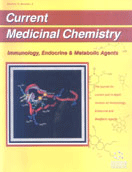Abstract
This chapter covers the beneficial effect of curcumin, a biphenolic active compound of turmeric in diabetes and hypertension. Curcumin as a dietary component plays an important role in diabetes and hypertension inhibition as well as to mediate its anti-inflammatory effect by regulating redox status, transcription factors, fatty acids composition and various enzymatic activities. The active involvement of curcumin in the activation of activating peroxisome proliferator-activated receptor γ while the reduction in thiobarbituric acid reactive substances and succinate dehydrogenase is well known and correspondingly the disregulated adiokine which are involved in insulin resistance and development of Type 2 diabetes may be recovered by curcumin. The reduction in insulin resistance is induced by curcumin via activation of various transcription factors such as lipoprotein lipase, NF-E2-related factor 2, and liver enzymes involved in metabolic processes. Consequently, the molecular interaction of curcumin with adiponectin and signal transduction in various metabolic processes hinder insulin resistance, diabetes acceleration factors and other inflammatory symptoms linked with diabetes and hypertension.
Keywords: Adipokines, Curcumin, Diabetes, Hypertension, Inflammation.





















